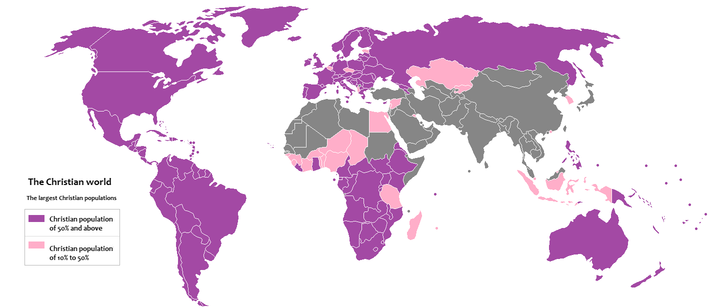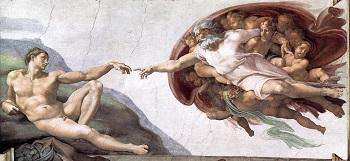Christians believe that Jesus of Nazareth, a Jewish man in the 1st century, is the Messiah (Christ) prophesied in the Old Testament (the Tanakh, or Hebrew Bible). Christians believe that Jesus Christ was born, lived, and died for the sins of all people.¹ Jesus’s ministry in Judea and the surrounding area was recorded in four gospels: Matthew, Mark, Luke, and John. Jesus After Jesus’s death by crucifixion the gospels end with Jesus’s resurrection and ascension to heaven.¹ Jesus’s followers, called disciples, were told to share his gospel (good news) throughout the world.¹

Christians believe in the Bible, which is the collection of the Old and New Testaments. The New Testament includes the gospels as well as the teachings and letters of apostles and disciples of Jesus.¹ Christians use the 10 Commandments part of the Old Testament, summarized in the New Testament: 1 John 3:23, "And this is his commandment, that we believe in the name of his Son Jesus Christ and love one another, just as he has commanded us."¹
Most Christians believe in the triune nature of God: that is, God in three persons (Father, Son, and Holy Spirit). However, Christianity is divided into many denominations with varying interpretations of the Bible and Jesus’s words¹. The three main branches are Roman Catholic, Eastern Orthodox, and Protestantism. The Eastern Orthodox church split from the Roman Catholic tradition in 1054 AD.¹ Eastern Orthodoxy is dominant in Eastern Europe, especially Russia.¹
Image sources:
1. Inset: Wikimedia
2. Title Image: Wikimedia
Reference:
1. Religion & Public Life Project. Christian Traditions. Retrieved May 22, 2014, from http://www.pewforum.org/2011/12/19/global-christianity-traditions/
© BrainMass Inc. brainmass.com June 30, 2024, 9:20 am ad1c9bdddf

